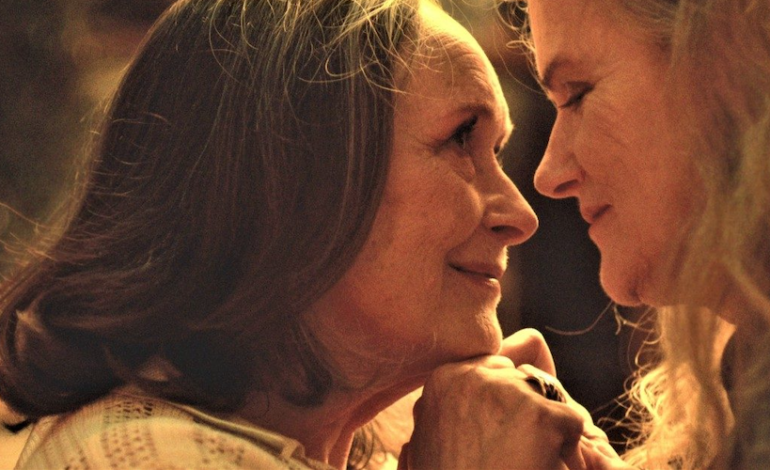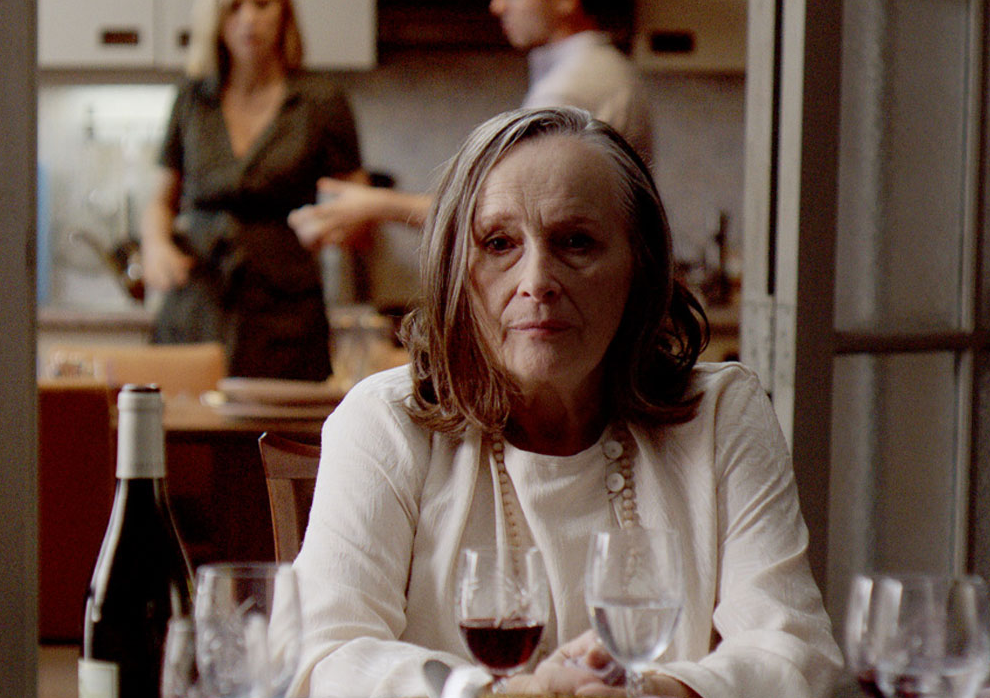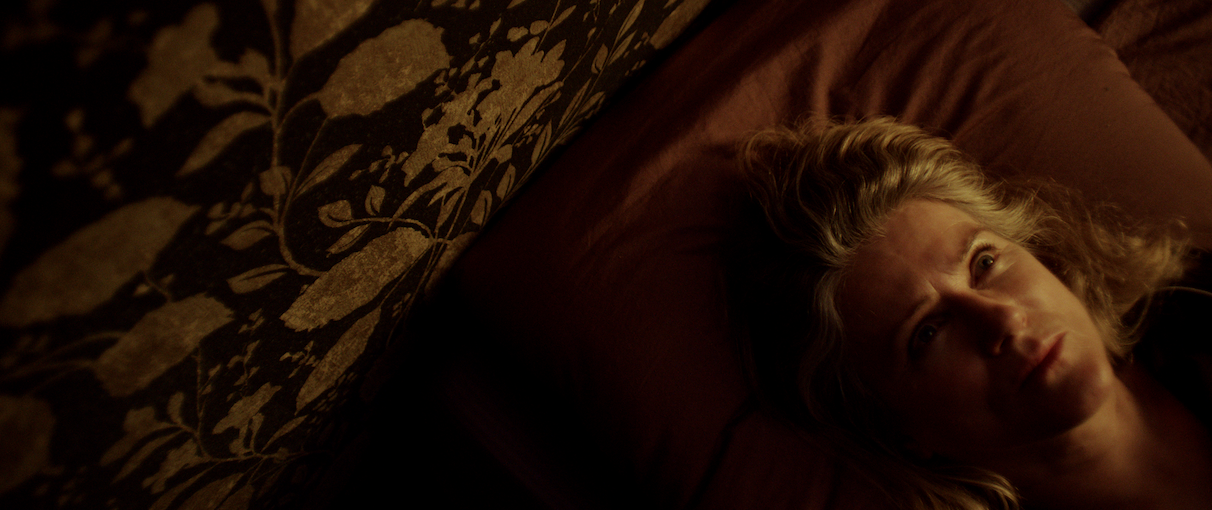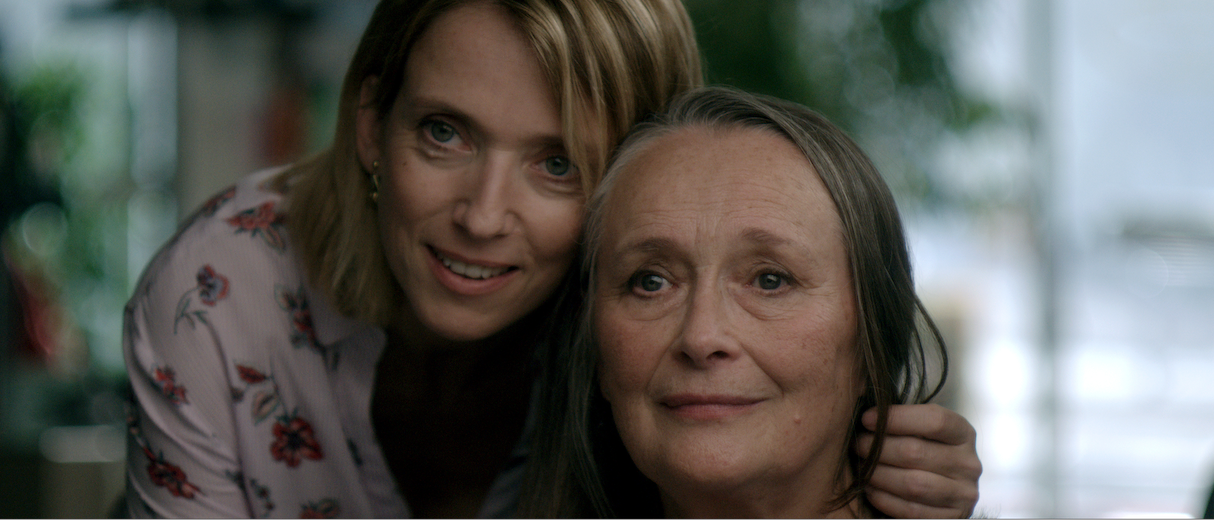

Directed by Filippo Meneghetti (Maistrac: lavorare in Cantiere, L’intruso) in her feature film debut, and written by Meneghetti, Malysone Bovorasmy (“Nina”), with further writing contributions from Florence Vignon, Two Of Us (2019) follows two retired women, Nina (played by Barbara Sukowa), and Madeleine (Martine Chevallier), who have been secretly in love for decades. Everybody, including Madeleine’s family, thinks they are simply neighbors, sharing the top floor of their building. They come and go between their two apartments, enjoying the affection and pleasures of daily life together, until an unforeseen event turns their relationship upside down and leads Madeleine’s daughter to gradually unravel the truth about them.
Barbara Sukowa (Hannah Arendt, Lola, “12 Monkeys”) is an absolute tour de force in this film. I think where her acting and character truly shines is after Madeleine becomes immobile and unable to speak. Not only does this leave Nina to become increasingly desperate, but also leads her to take drastic measures to get close to Madeleine without her daughter realizing it. This includes sneaking into Madeleine’s apartment, blackmailing Madeleine’s aid Muriel, and just trying so hard to be with Madeleine without her family discovering how intimate their relationship goes. Sukowa wonderfully portrays her character’s love for Madeleine and her growing frustration and desperation at trying to get to Madeleine and communicate with her children. That’s also not to say anything of the exceptional acting from Martine Chevallier (“Mozart,” Tell No One) as Madeleine Girard, who has great chemistry with Sukowa and has great emotional range. You can really feel and see how much she loves Nina but also how hard it is to tell her children that she never loved their father and wants to move to Italy with her real love. Though she spends ⅔ of the film mostly immobile and with limited communication, her acting still very much shines through the subtleties of her facial, hand, or even just eye movements. There’s also Léa Drucker (“War of the Worlds,” “The Bureau,” The Man of My Life) as Anne who portrays her character’s growing suspicions about her mother as well as her conflicted feelings about Nina and her mother very effectively.


The story is quite simple yet effective. I think the writers give you just enough time to care about Nina and Madeleine’s relationship, as well as time to set up Madeleine’s conflict before she ultimately is unable to speak or even take care of herself. This then shifts the focus mostly to Nina’s perspective for the rest of the film, in which the stakes in their relationship are now higher than ever, and because we spent the first third getting to know and caring about our two leads, we understand what’s at stake and we empathize with Nina when she goes to certain extremes to get to Madeleine. There’s even a subplot involving Muriel (Muriel Bénazéraf) that seems somewhat pointless but has a drastic payoff. Part of this is also thanks to the direction from Filippo Meneghetti as well as the cinematography from Aurélien Marra. A lot of effective long takes and wide shots, as well as some beautiful close ups and moments that would simply linger on the characters or frames and let them play out. I also think credit goes to the color correction. The colors were very dull, soft, and muted, but at the same time very vibrant. The whole film, especially scenes in the apartment and at the park, were very beautiful.


Something else that I really loved about the film was the sound editing. There were several effective moments where a sound would become louder and louder until it would drown out every other sound. Two such moments that stand out in my mind are when the sound of crows drowns out the sound of a girl’s voice, and when the sound of a spoon tapping against a tea cup becomes almost unbearable and the impatient Nina has to get up. Moments like these were very effective. There was also a recurring use of this song that would play when Nina and Madeleine were together that I thought was really beautiful and demonstrated their love for each other and for Italy.
I think my only gripe with the film was this recurring flashback of the two women at this public park together when they were little girls. No spoilers, but something happens to one of them. It then shows in the present that both Madeliene and Nina are haunted by this memory. Unfortunately, nothing else is really shown past that. We know something happened to Nina and Madeleiene when they were younger and they remember it to this day, but we already know they’ve been friends for decades. I thought we were going to see or at least be told that this life or death moment is where Nina and Madeleine feel in love, but we see too little of the flashback for that to be made clear. So it feels like a set-up with very little payoff and ultimately like rather pointless filler, since we already know that Nina and Madeleine have been friends for decades.


Verdict: 4.5 out of 5 Stars
Outside of the implementation of a flashback that lacks any real payoff, Two Of Us is a beautiful story. Featuring great lead performances, beautiful cinematography, great direction, and a simple yet effective, tragic yet heartfelt, romance. What’s very inspiring about this story in my eyes is the focus on older, closeted lesbians, as many LGBT stories that I’ve come across are coming of age narratives. So it’s very refreshing to see a different take on romance with an older generation in which they have different, but also easily identifiable, conflicts and desires.
